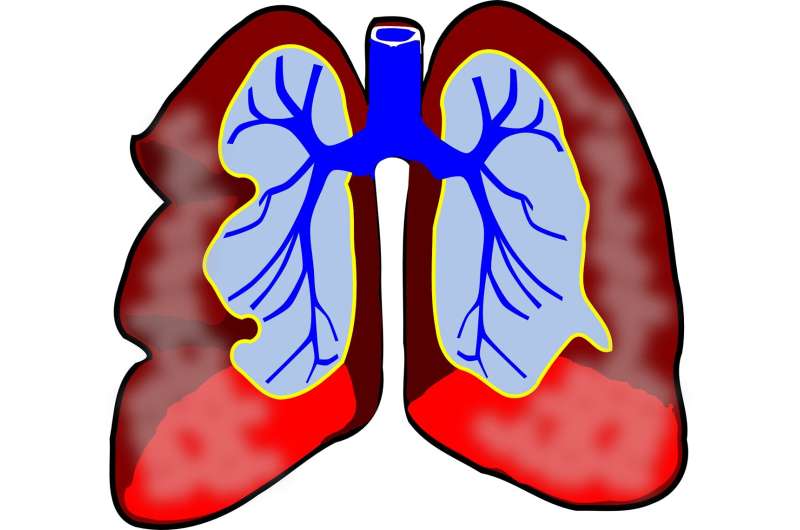This article has been reviewed according to Science X's editorial process and policies. Editors have highlighted the following attributes while ensuring the content's credibility:
fact-checked
peer-reviewed publication
trusted source
proofread
Impacts on lung surgery of the removal of race-correction in lung pulmonary function tests

Race-correction for spirometry, a type of pulmonary function test, is commonly done in medical institutions across the United States.
Recently, the American Thoracic Society released recommendations to remove race-correction from spirometry tests, which could change the way surgeons think about selecting surgical candidates.
Spirometry tests are a noninvasive test that assesses the function of the lungs when being evaluated for a chest or lung disease, including lung cancers. Within the United States, these exams offer adjustments for age, sex, and height as well as race-correction values for some racial and ethnic groups.
Currently, the use of race-correction for African Americans assumes a 10-15% deficiency in lung function compared to white Americans.
To date, the concern with race-correction in spirometry tests for African American patients has primarily centered on misdiagnosis and underdiagnosis of medical diagnoses such as asthma or chronic obstructive pulmonary disease. However, limited research has focused on African Americans requiring surgery for lung cancer.
A recent study led by Sidra Bonner, M.D., M.P.H, M.S. a surgery resident at the University of Michigan Health, has now provided new information about the clinical impact of race-correction in pulmonary function tests for African American patients with lung cancer undergoing surgical evaluation. The findings are published in the journal JAMA Surgery.
In this study, most African American patients undergoing surgery currently had race-corrected values in spirometry testing before surgery. Additionally, the study found that the removal of race-correction caused a significant reduction in the estimation of lung function from the test.
The study presented cardiothoracic surgeons with hypothetical cases of African American patients, with and without race-corrected spirometry results. Research results found that the surgeons' treatment recommendations significantly varied between the two hypothetical cases.
"The removal of race correction for African American patients has the potential to change who surgeons consider to be candidates for surgical intervention and what type of surgery may be performed," said Bonner.
"It is important that race-correction in spirometry tests is removed given that it is based on the flawed concept of race as a biological factor. However, it is important to realize the implications of race-correction in spirometry tests differs between medical and surgical conditions. For African Americans with lung cancer being evaluated for surgery, this may exacerbate existing disparities in lung cancer care."
Considering the coming changes, Bonner encourages surgeons to do research about how the change of removing race-correction may impact their practice.
"The change in pulmonary function test numbers could lead surgeons to believe that patients are at a higher risk for post-operative complications or mortality than they actually are," said Bonner. "Therefore, there is a need for surgeons to educate themselves about anticipated changes to spirometry testing in their own clinical practices and a wider need for surgical societies to provide new recommendations about surgical candidacy for lung cancer surgical resection in the light of the end of race-correction in spirometry."
More information: Sidra N. Bonner et al, Clinical Implications of Removing Race-Corrected Pulmonary Function Tests for African American Patients Requiring Surgery for Lung Cancer, JAMA Surgery (2023). DOI: 10.1001/jamasurg.2023.3239




















